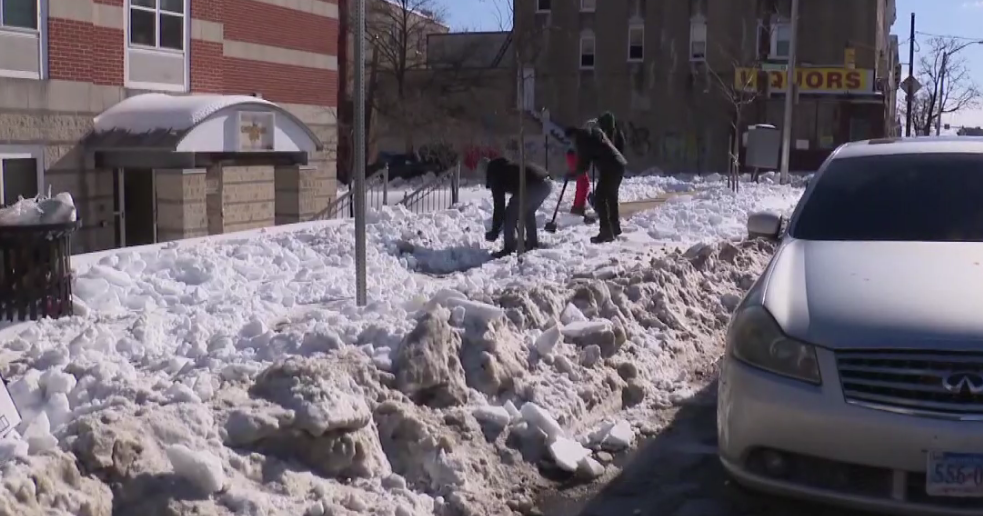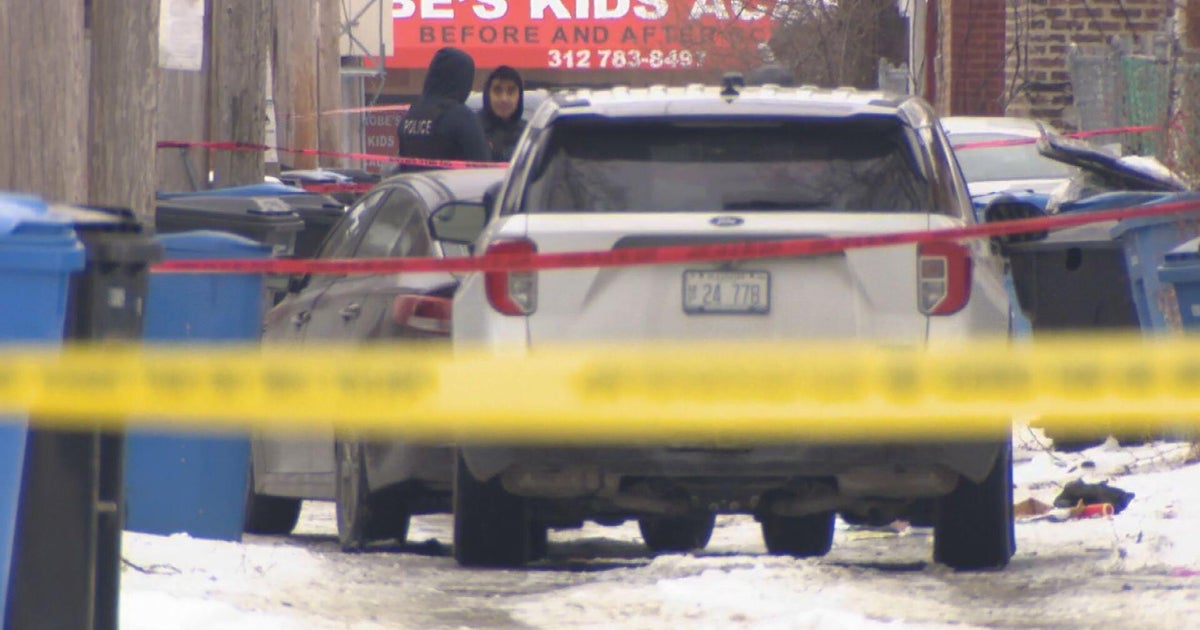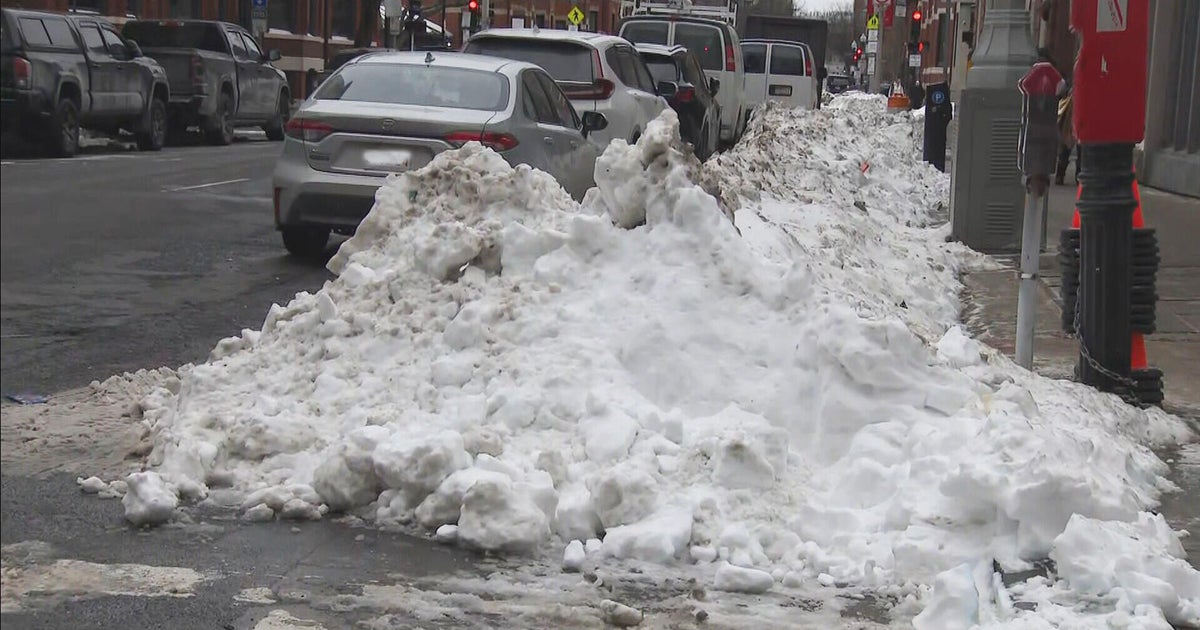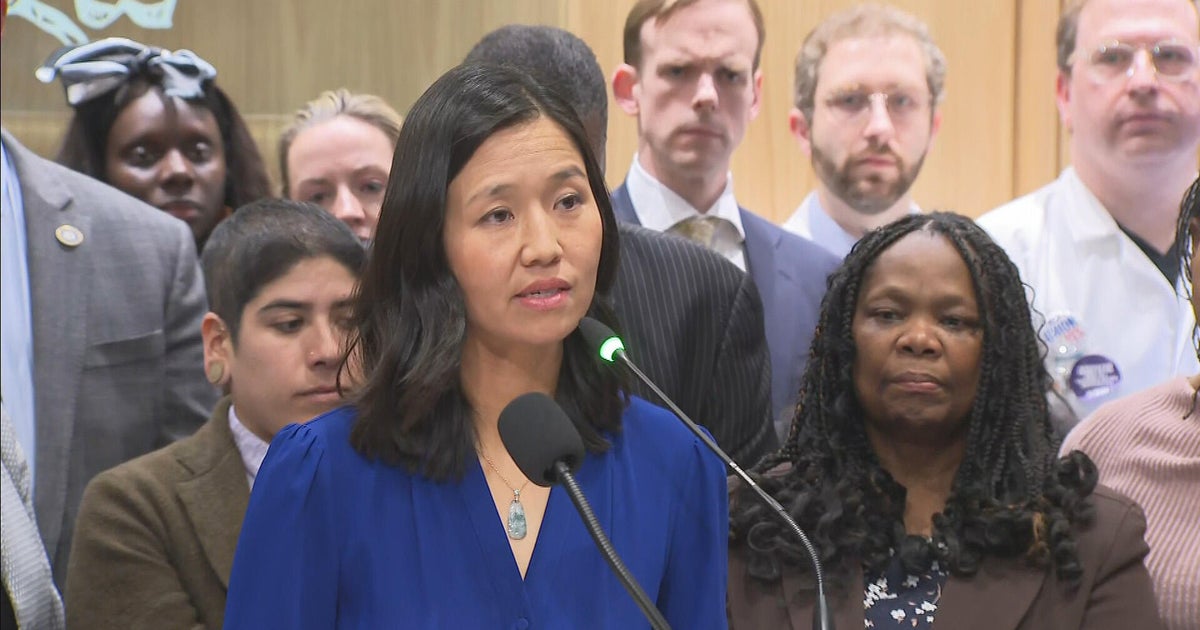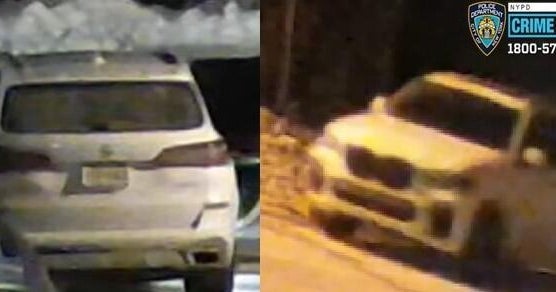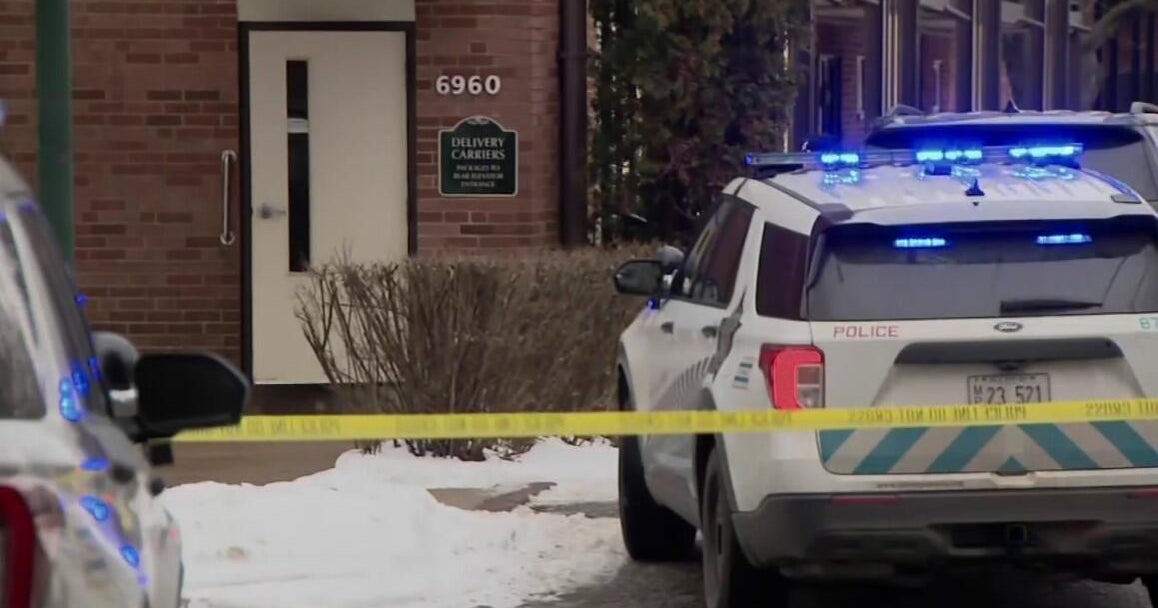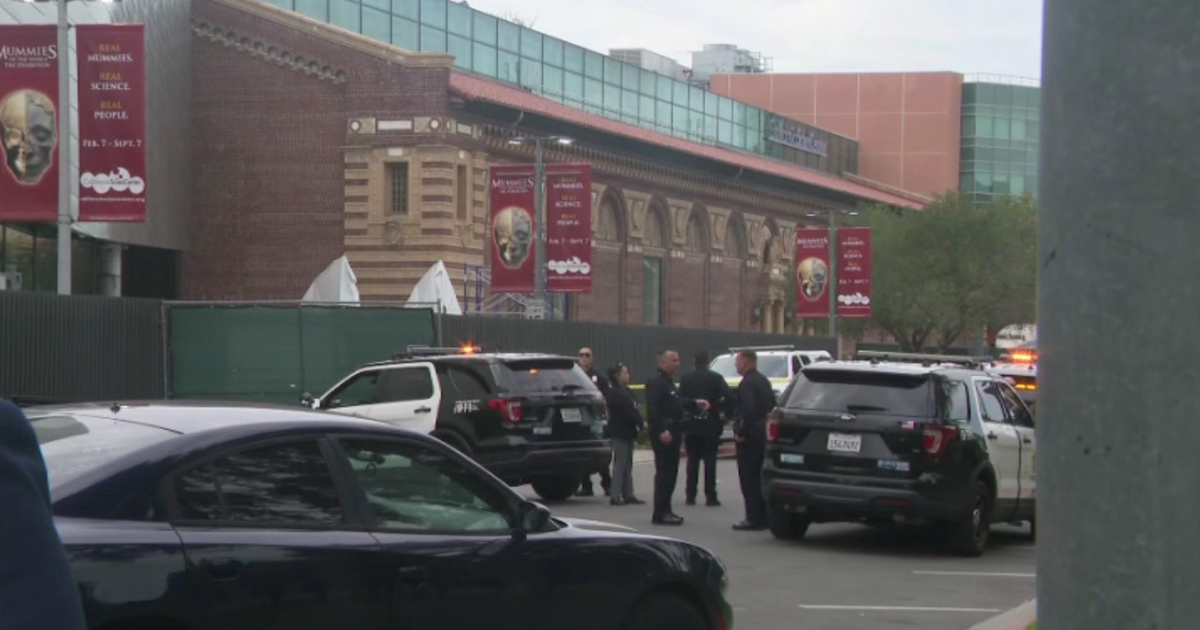Christopher Columbus Statues Taken Down After Mayor Lightfoot Orders Them 'Temporarily Removed' From Grant Park, Arrigo Park
CHICAGO (CBS)-- After protests, demonstrations and violent clashes with police, Chicago's Christopher Columbus statues have been removed from both Grant Park and Arrigo Park.
CBS 2's Marissa Parra reported crowds cheered overnight as the Grant Park statue was removed by the city. The statue in Little Italy was removed early Friday morning. A third statue of Columbus in the South Shore neighborhood has not been removed. The statue, which is part of a fountain, was built in 1892 and moved to its current location at 92nd Street and Exchange Avenues in 1909. It was built to mark the 400th anniversary of Columbus' voyage to the New World according to the city's website. Before it was moved to South Chicago, it stood outside City Hall on Washington Street.
The removal of the Grant Park statue was met by cheers from people who say monuments to Columbus are an insult to Indigenous Americans, and their removal has been a long time coming.
"The Europeans came here to colonize, and Christianize, and commit massive killing, and they brought disease, and they killed our culture," said Lisa Hamidani.
"Just because the statue is taken down doesn't mean that history is gone," Maggie Mikula said.
The scene in Arrigo Park was starkly different, as only somber silence greeted the removal of the statue in Little Italy.
"I had just moved in in October of 1966, and they had a big kind of a celebration here," said Little Italy resident Wade Freeman. "It's kind of a big deal to see this go away."
Pasquale Gianni, with the Joint Civic Committee of Italian Americans, called the statue's removal "disheartening."
"These are where the statues belong, in their communities," he said.
The Joint Civic Committee of Italian Americans said they weren't consulted, and they want answers about when the statues will be returned.
Crowds protested outside Mayor Lori Lightfoot's home overnight, hours after the first statue was removed.
The removal of the statues in the middle of the night drew comparisons to former Mayor Richard M. Daley's decision to bulldoze the runways at Meigs Field in the dark of night in March 2003, and prompted mixed reaction from members of the City Council.
Ald. Nicholas Sposato (38th), an Italian-American, tweeted "It's not me you have to worry about being pissed. It's the army of Italians from the suburbs!!" after an activist group posted that they hoped part of the reason for removing the statue was to "piss off Sposato."
Ald. Raymond Lopez (15th), one of the mayor's most outspoken critics, also denounced the mayor's removal of the statues.
"What has become of Chicago? We have a mayor forced into submission by anarchy & mob-rule? No more public process, official discourse, or on-the-record debate. The lesson learned is that if you want action from Lightfoot, show up en mass at her house & she will cave every time," he posted on Twitter.
However, Ald. Rossana Rodriguez-Sanchez (33rd), a member of the council's Progressive Caucus, and one of six self-proclaimed Democratic Socialists on the council, praised the decision to remove the statues. She was in Grant Park when that statue came down, and posted several tweets celebrating its removal.
"It's coming down because of the activism that has led to this moment. Indigenous, Black and Brown people have been fighting for so long to see this happen. It's also a balancing act, the Mayor just accepted Federal Agents from Trump," she wrote.
Ald. Maria Hadden (49th) also hailed the statues' removal.
"Indigenous and Black organizers in our city brought an issue to light and challenged government to do what was right. I'm glad the Mayor responded appropriately," she posted on Twitter.
The Columbus statues have become a focus point for activists during the nationwide fight for racial justice, as protesters have said the city should not be honoring the Italian explorer, because of his subjugation and enslavement of Indigenous people after he landed in Hispaniola in 1492.
The statues had repeatedly been vandalized in recent weeks, sprayed with terms like "BLM" and "genocide," prompting the city to cover both statues in plastic to protect them from further vandalism.
The controversy had become a flashpoint for Lightfoot, who until now had resisted calls to remove the monuments, and also has rejected calls to rename the city's Columbus Day holiday. Last month, she suggested the controversy over Columbus' legacy should be used "as an opportunity to not try to erase history, but embrace it full on."
"There was a lot of harm that happened over the arc of the history of this country, beginning with the original sin of slavery, and it's way past time that we have a reckoning on that. But I think we also have to recognize that our history, both in this country and our city, is rich and diverse and the thing that we need to do is do what I think the organizers of the Columbus Day Parade have done, which is invite many people of different backgrounds, different perspectives, to participate in what is really a people's celebration."
Friday morning, the mayor's office said the statues were "temporarily removed ... until further notice."
"This action was taken after consultation with various stakeholders. It comes in response to demonstrations that became unsafe for both protesters and police, as well as efforts by individuals to independently pull the Grant Park statue down in an extremely dangerous manner. This step is about an effort to protect public safety and to preserve a safe space for an inclusive and democratic public dialogue about our city's symbols," the mayor's office said in a statement. "Over the coming days, Mayor Lightfoot and the City will be announcing a formal process to assess each of the monuments, memorials, and murals across Chicago's communities, and develop a framework for creating a public dialogue to determine how we elevate our city's history and diversity."
On July 17, a group of protesters clashed with police officers at the Christopher Columbus statue in Chicago's Grant Park. Some of them tried to tear down the statue and even turned on the officers, attacking at least 18 of them during the demonstration.
The demonstration started at Buckingham Fountain as a protest to defund the police before moving south into Grant Park. The situation escalated very quickly as more people showed up. Chicago police officers provided security, but once the crowd got to Grant Park things took a violent turn.
Lightfoot has said a "group of vigilantes" hijacked an otherwise peaceful protest at the statue, and pelted police officers with rocks, frozen water bottles, and fireworks.
Lightfoot said while people have a "sacred right" to peacefully protest in the United States, and she said she supported what had been planned as a "to really uplift the stories of indigenous people here in Chicago" on Friday evening in Grant Park. However, she said some of those in the crowd "came for a fight, not a peaceful protest."
"That's not peaceful protest, that's anarchy, and we are going to put that down. We are actively investigating, and we will bring those people to justice," she said.
The mayor also described multiple reports of excessive force by police during the confrontation as "unacceptable," and said the Civilian Office of Police Accountability would investigate. COPA has said it received more than 20 complaints against police in connection with last week's protest.



